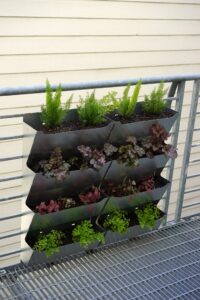Contents
- 1 Fresh Gardens Ahead: Tackling Pet Waste Odor Naturally
- 2 The Essentials of Eco-Friendly Pet Waste Deodorizers
- 3 Selecting the Right Pet Waste Deodorizer
- 4 Mastering Garden Freshness: Step-by-Step Guide
- 5 The Bigger Picture: Eco-Friendly Gardening Best Practices
- 6 Frequently Asked Questions (FAQs)
- 7 Author
Key Takeaways
-
Eco-friendly pet waste deodorizers are essential for maintaining a fresh garden without harming the environment.
-
Enzyme-based deodorizers work by breaking down waste odors naturally, making them safe for pets, people, and plants.
-
When selecting a deodorizer, look for non-toxic ingredients and consider the size and usage of your garden.
-
Regular application and proper maintenance are key to keeping your garden smelling fresh.
-
Incorporating other green practices, like composting, can enhance the benefits of using an eco-friendly deodorizer.
Fresh Gardens Ahead: Tackling Pet Waste Odor Naturally

What Causes Pet Waste Odor?
Have you ever stepped into a garden and been hit by an unpleasant smell? That’s often due to pet waste, which can leave a lingering odor that’s tough to ignore. The culprit behind this stench is bacteria that break down the waste, releasing ammonia and other compounds into the air. If not dealt with properly, this can turn your green oasis into a no-go zone.
Why Green Odor Control Matters
Using harsh chemicals to tackle pet waste odor can do more harm than good. They might mask the smell for a while, but they can pollute the soil and harm beneficial garden organisms. Therefore, green odor control is not just a preference; it’s a necessity for sustainable living and for keeping our gardens safe for everyone to enjoy.
When it comes to keeping our gardens smelling fresh, we want to do it in a way that’s in harmony with nature. That’s where eco-friendly pet waste deodorizers come in. They’re not just about masking odors; they’re about eliminating them at the source without damaging the environment.
The Essentials of Eco-Friendly Pet Waste Deodorizers
Understanding Enzyme-Based Deodorizers
Enzyme-based deodorizers are a game-changer in green gardening. These deodorizers use natural enzymes to break down the odor-causing bacteria in pet waste. It’s a process similar to digestion. The enzymes speed up the breakdown of organic matter, turning it into simpler, odorless compounds. This means you can say goodbye to bad smells without saying goodbye to your eco-friendly principles.
Enzymes are nature’s little helpers, and when it comes to deodorizing, they pack a powerful punch. Unlike traditional chemicals that can harm the microbes in the soil, enzymes work with them, improving the health of your garden in the long run.
For example, a popular eco-friendly pet waste deodorizer might contain enzymes like protease and amylase, which target proteins and starches in the waste, breaking them down into harmless substances that won’t offend your nose or hurt your plants.
Benefits of Choosing Eco-Friendly Options
Opting for an eco-friendly deodorizer isn’t just good for the earth; it’s also better for your health and the health of your pets. Chemical-based products can cause skin irritations and other health issues, but natural deodorizers are gentle and safe. Plus, they help maintain the natural balance of your garden’s ecosystem, which is crucial for plant growth and soil health.
Most importantly, eco-friendly options contribute to a sustainable lifestyle. By choosing products that are biodegradable and made from renewable resources, you’re reducing your carbon footprint and supporting a cleaner, greener planet.
Selecting the Right Pet Waste Deodorizer

Evaluating Ingredients for Safety and Efficacy
When picking out a deodorizer for your garden, it’s crucial to scrutinize the ingredients. Look for products that list their components clearly and opt for those with natural, non-toxic elements. The safety of your family, pets, and the local wildlife should be top priority. For instance, avoid ingredients like bleach or ammonia, which can harm the beneficial organisms that keep your soil healthy.
Here’s what to look for in a pet waste deodorizer:
-
Natural enzymes: These are the powerhouses that break down odors without harming the environment.
-
Plant-based fragrances: If you want a fresh scent, choose deodorizers that use essential oils or botanical extracts.
-
Biodegradable formula: Ensure the product will break down naturally over time and not contribute to pollution.
Remember, the size of your garden and the number of pets you have will also dictate the kind of deodorizer you need. A larger area or more pets might require a more robust formula or more frequent application.
Application Tips for Optimal Results
For the best results, follow the instructions on your deodorizer carefully. Most products will guide you on how much to use and how often to apply it. It’s usually a good idea to clean up any solid waste before applying the deodorizer to ensure it can penetrate the area where odors linger.
Consider the weather as well. A calm, dry day is perfect for treating your garden, as this allows the deodorizer to work without being diluted by rain or blown away by wind. Also, give the product time to work before you let pets back into the treated area.
Lastly, if you’re dealing with a particularly stubborn smell, you may need to treat the area more than once. Persistence is key, and with time, those odors will be a thing of the past.
Mastering Garden Freshness: Step-by-Step Guide
Preparing Your Garden for Treatment
Before you even think about deodorizing, start with a clean slate. Remove any pet waste and debris from your garden. This not only helps with odor control but also prevents the spread of disease and keeps your garden looking its best.
Next, give your lawn a good watering. Moist soil will help the deodorizer to seep in and reach the odor-causing bacteria more effectively. Just be sure not to overdo it; you want the ground moist, not waterlogged.
How to Apply Pet Waste Deodorizer
Applying the deodorizer is simple. If it’s a spray, evenly coat the affected areas, paying special attention to spots where your pets frequently relieve themselves. For granular products, sprinkle them over the target areas and lightly water them in to activate the enzymes.
Some deodorizers may require you to mix them with water before application. In this case, make sure to follow the mixing instructions to the letter to ensure you’re not diluting the product too much or too little.
Maintenance: Keeping the Freshness Lasting
Maintenance is all about regularity. Apply your pet waste deodorizer on a schedule — whether that’s weekly, bi-weekly, or monthly — to keep odors at bay. Also, consider spot-treating areas immediately after your pet does their business to prevent odors from setting in.
And don’t forget about your garden’s overall health. A well-maintained garden with healthy soil will naturally control odors better than a neglected one. Regularly aerating your lawn and adding organic matter can improve soil structure and reduce odor problems.
The Bigger Picture: Eco-Friendly Gardening Best Practices

“Organic Gardening Essentials | 9 …” from bonnieplants.com and used with no modifications.
Incorporating Composting and Odor Control
Composting is a fantastic way to recycle garden and kitchen waste, but did you know it can also help with odor control? A well-managed compost bin breaks down organic matter without releasing unpleasant smells. Plus, the compost you create is excellent for enriching your garden soil.
Just be careful with pet waste. Composting it can be tricky, as it can contain pathogens harmful to humans. If you want to compost pet waste, do your research and use a separate bin designed specifically for this purpose.
Choosing Plants That Help Neutralize Odors
Besides deodorizers, certain plants can help keep your garden smelling fresh. These green warriors absorb pollutants and release clean oxygen into the air. Consider planting:
-
Mint: This hardy herb can overpower less pleasant scents with its strong, fresh aroma.
-
Lemon balm: Similar to mint, lemon balm has a citrusy scent that can freshen up any space.
-
Lavender: Known for its calming fragrance, lavender can mask odors and attract pollinators.
Integrating these plants into your garden isn’t just about odor control; they also add beauty and attract beneficial insects.
By following these steps and embracing eco-friendly practices, you can maintain a garden that’s as fresh as it is green. And remember, the goal isn’t just to have a nice-smelling garden; it’s to create a sustainable, healthy environment that will thrive for years to come.
Frequently Asked Questions (FAQs)

How Often Should I Use Pet Waste Deodorizers?
The frequency of deodorizer application depends on several factors, such as the number of pets you have, the size of your garden, and the climate. Generally, for one pet, applying a deodorizer once a week should suffice. If you have multiple pets or live in a warmer climate where odors can intensify, you might need to apply it more frequently. Always follow the instructions provided with the product for the best results.
Can I Make a DIY Pet Waste Deodorizer?
Yes, you can create a simple homemade deodorizer using ingredients like vinegar, baking soda, and water. Mix these in a spray bottle and apply to the affected areas. However, keep in mind that while this solution can help with odors, it may not be as effective as a commercially available enzyme-based deodorizer, which is specifically designed to break down pet waste odors at the molecular level.
Are Pet Waste Deodorizers Safe around Vegetables and Herbs?
Most eco-friendly pet waste deodorizers are safe to use around vegetables and herbs because they contain natural, non-toxic ingredients. However, it’s always best to check the product label or consult with the manufacturer. If you’re using a homemade deodorizer, ingredients like vinegar can affect the pH of the soil, so use them with caution around sensitive plants.
Do Eco-Friendly Deodorizers Work as Well as Chemical Ones?
Eco-friendly deodorizers can be just as effective as their chemical counterparts, especially when they contain enzymes that target and break down the odors. Many people prefer eco-friendly options because they are safer for pets, plants, and the environment. It’s all about finding the right product and using it correctly.
Keep in mind that while chemical deodorizers may provide a quick fix, they can also introduce harmful substances into your garden that may have long-term negative effects on the ecosystem.
How Can I Prevent Pet Waste Odor in My Garden?
Prevention is always better than cure. To prevent pet waste odor, pick up waste promptly and consider training your pets to use a specific area of the garden that’s easier to clean and treat. You can also introduce odor-neutralizing plants, maintain a healthy lawn, and use a regular application of an eco-friendly deodorizer to keep smells at bay.
Maintaining a clean garden, with regular removal of pet waste, will go a long way in preventing odors. Additionally, proper hydration and aeration of your lawn will encourage the breakdown of any remaining organic matter, reducing the chance of unpleasant smells developing.
Combining these strategies with your eco-friendly deodorizer will create a comprehensive approach to managing pet waste odor in your garden. With consistent care and the right products, you can enjoy a fresh, pleasant outdoor space that’s welcoming for both two-legged and four-legged family members.



